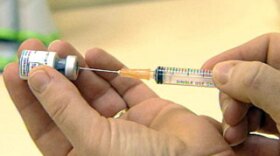North Carolina Gov. Roy Cooper declared a state emergency Tuesday due to the coronavirus and his administration urged people over age 65 and medically fragile residents to avoid large gatherings.
Cooper's declaration gives state government broader powers and fiscal flexibility, granting health agencies access to temporary workers and the ability to aggressively clean public places and state facilities. The governor's statewide health recommendations also include limiting visitors to nursing homes and assisted-living facilities.
Seven North Carolina residents have tested positive for COVID-19 since the first was announced last week. Six are from Wake County, leading state officials to make more restrictive recommendations for Wake County, which includes Raleigh, the state capital and the broader Triangle region.
Triangle-area employers, which include state agencies, should favor technology so employees can work from home, flexible sick-leave policies and staggered worker arrival and departure times. Organizers of large events in the region that largely attract people in higher-risk categories also should consider canceling or postponing them, state health department Secretary Mandy Cohen said.
Five of the six Wake County patients had traveled to Boston to attend a Biogen company conference, state officials said. The seventh patient lives in Chatham County.
“These recommendations can mean inconvenience, loss of income or disappointment," Cooper told reporters. “But they are based on the best medical advice and they will be lifesaving. We do want people to take this seriously.”
For most people, the new coronavirus causes only mild or moderate symptoms, such as fever and cough. For some, especially older adults and people with existing health problems, it can cause more severe illness, including pneumonia. The vast majority of people recover from the new virus.
The most high-profile event this week in North Carolina, the Atlantic Coast Conference men's basketball tournament, began Tuesday in Greensboro, 75 miles (121 kilometers) west of Raleigh. This event is still on, but the new isolation recommendations for older adults and others at high risk of severe illness could discourage attendance. State health officials said they've been talking to conference Commissioner John Swofford.
"This is a critical moment in the growing outbreak of COVID-19 in North Carolina, when such (preventive) measures can potentially impact the spread of the disease," Cohen said.
Cohen said the number of positive tests is expected to grow. Cohen said the state is expanding a COVID-19 task force to include representatives of hospitals, long-term care facilities and business.
Access to testing kits remains a challenge, she said. The state health lab currently has enough supplies to test another 300 people.
Burlington-based Laboratory Corp. of America received FDA approval last week to test using a different method, but the company's nationwide service area means North Carolina's testing expansion won't grow right away, according to Cohen.
According to the World Health Organization, people with mild illness recover in about two weeks, while those with more severe illness may take three to six weeks to recover. In mainland China, where the virus first exploded, more than 80,000 people have been diagnosed and more than 58,000 have so far recovered.
The virus has infected 600 people in the United States, and at least 27 have died, most in Washington state.









